Carcinising 'Alpha School' - a year innovating in home education
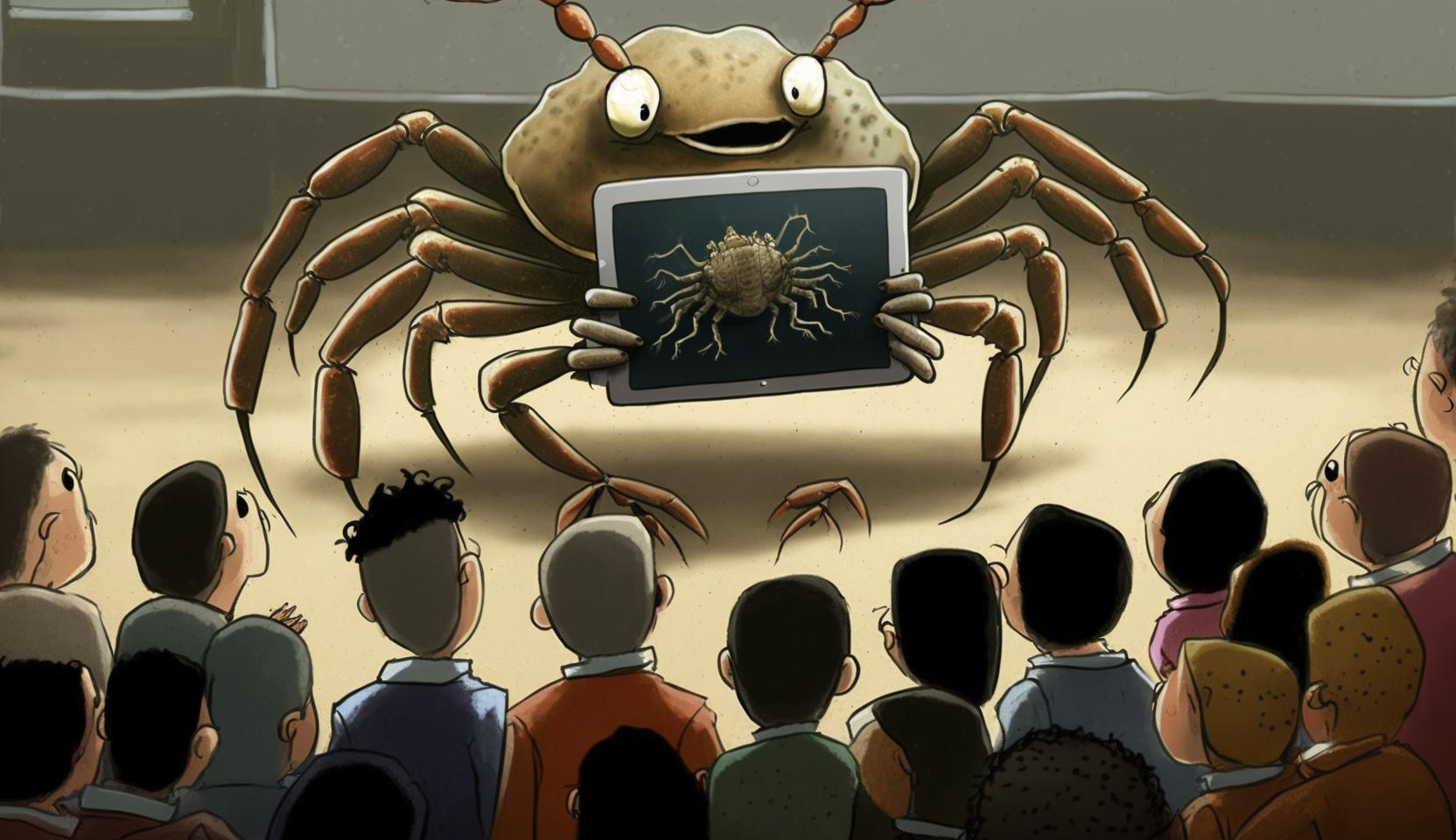
I started home educating Bigger Boy in October last year. Since then, we've independently evolved what strongly resembles an AI-driven 'school-of-the-future'.
Alpha School, a private school based in Texas USA, has recently become a media news sensation for its 'AI-driven learning' and claims of teachers replaced by artificial intelligence. It's a very hot-button topic in today's world of generative AI and the over-claiming for its purported abilities.
But can 'AI tutors' really replace teachers? And can AI-driven learning truly allow pupils to place in the top 2% nationally across the US, while only studying for two hours a day?
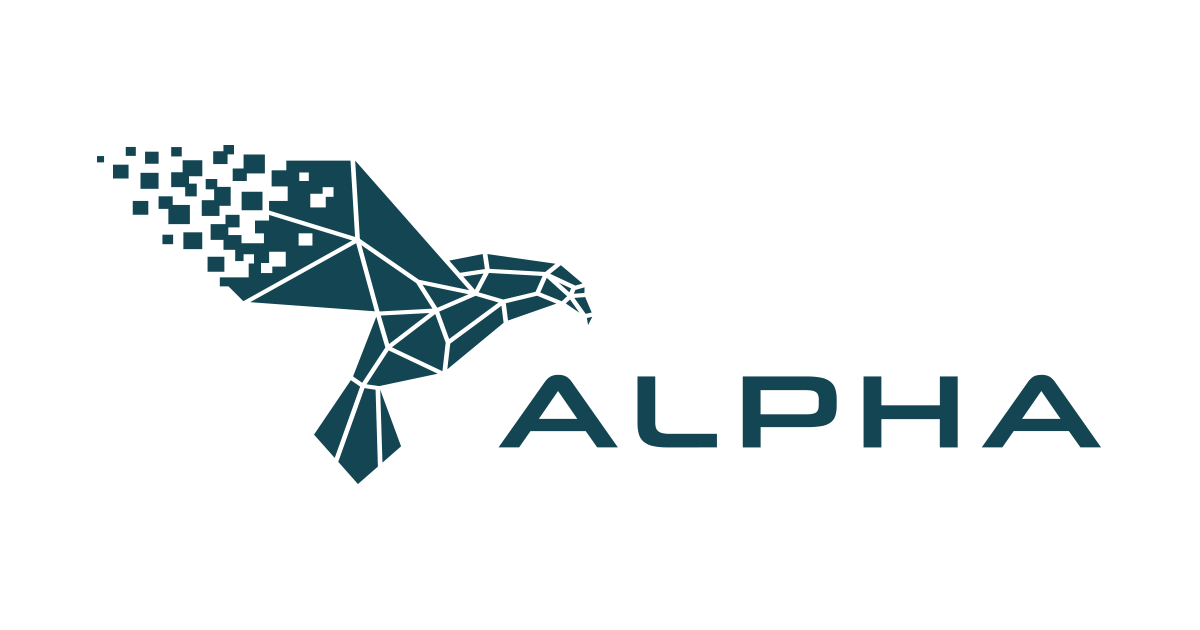
The reality of Alpha School is more prosaic, as evidenced by this INCREDIBLY long blogpost by one pupil's parent on Astral Codex Ten (seriously, folks, get a whole jug of coffee to enjoy while you read this one. I'll have retired by the time you get back).
So, prosaic, in fact, I didn't know I was doing anything unusual in home education until my husband, who'd started reading aforesaid blogpost, mentioned it to me.
The carcinisation of education
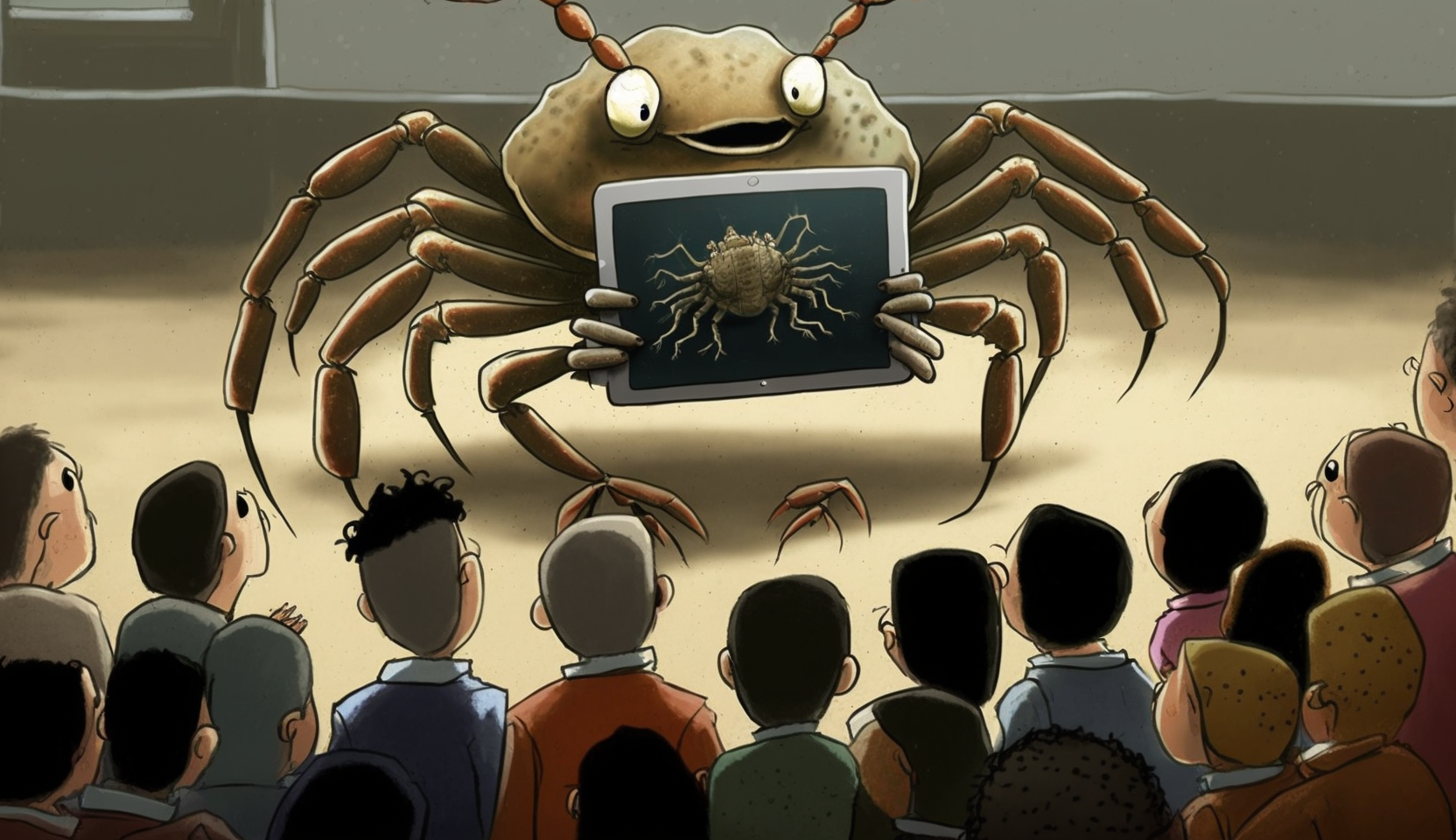
Carcinisation is a famous example of convergent evolution, whereby the same features pop up several times in different species. There are multiple species that have evolved with a crab-like body plan, despite not being a crab, because of advantages such as the ability to hide better or run faster sideways.

Now, you might be wondering what crabs have to do with Alpha School. The answer is, of course, convergent evolution. The process by which multiple people, organisations... or non-crab crustaceans, independently develop similar answers to broadly the same questions.
I didn't set out to replicate Alpha School at home.

When I crisis-removed Bigger Boy from the UK's school system in October (thank you, the Special Educational Needs crisis), I wasn't thinking about AI-driven learning or teachers of the future. I was just working out, usually by trial-and-error, how a non-teacher educates a Level Four/Five gifted autistic kid who can't be in a classroom due to sensory issues.

Parents freshly entering home education usually do one of two things. Some try to replicate school at home, setting up desks and buying a stack of CGP textbooks, or maybe adopting a US home schooling curriculum like Blossom and Root.

The 'fashion', however, (I'd say) on UK home education Facebook groups, such as Home Education For All, is more towards 'unschooling', also called child-led learning, where parents observe their children's interests and use them as an opportunity for education.
Often this is preceded by a period of 'deschooling' where parents and child(ren) learn together how home education can work - stereotypically by dumping 'school-shaped' ideas of how learning is done, where it should take place, and what it should look like.

Kids can get to 5th grade (Year 6 in the UK) equivalent in maths and literacy through everyday activities, such as baking, and by going on educational trips to local museums and other activities.
However, Bigger Boy was already somewhere around 9th grade maths (Key Stage 3) equivalent when he left school at the beginning of second grade. And, given his interests at that time included the process of death by brain-eating amoeba and Codename Sundial, the likelihood of unschooling by baking a nice cake together was pretty low.

Evolving and De-evolving from a Crab
As Bigger Boy was noticeably above primary school (something I first found out using an app called Doodle Maths), I spent the first few months of home education thinking we should do something more 'structured' than baking intercontinental ballistic missiles, but had no idea what age he was actually working at.
I faffed about with UK National Curriculum resources, such as on Twinkl or Oak National Academy, all of which were absurdly inappropriate. Shortly before Bigger Boy left school, we'd already had a mildly hilarious hour trying to complete a Year 3 (2nd grade) worksheet about Vincent van Gogh's The Starry Night where the assignment expected him to write something like "I like it because it is blue", but we somehow ended up in a lengthy discussion about the artistic merits of Duchamp's Fountain.
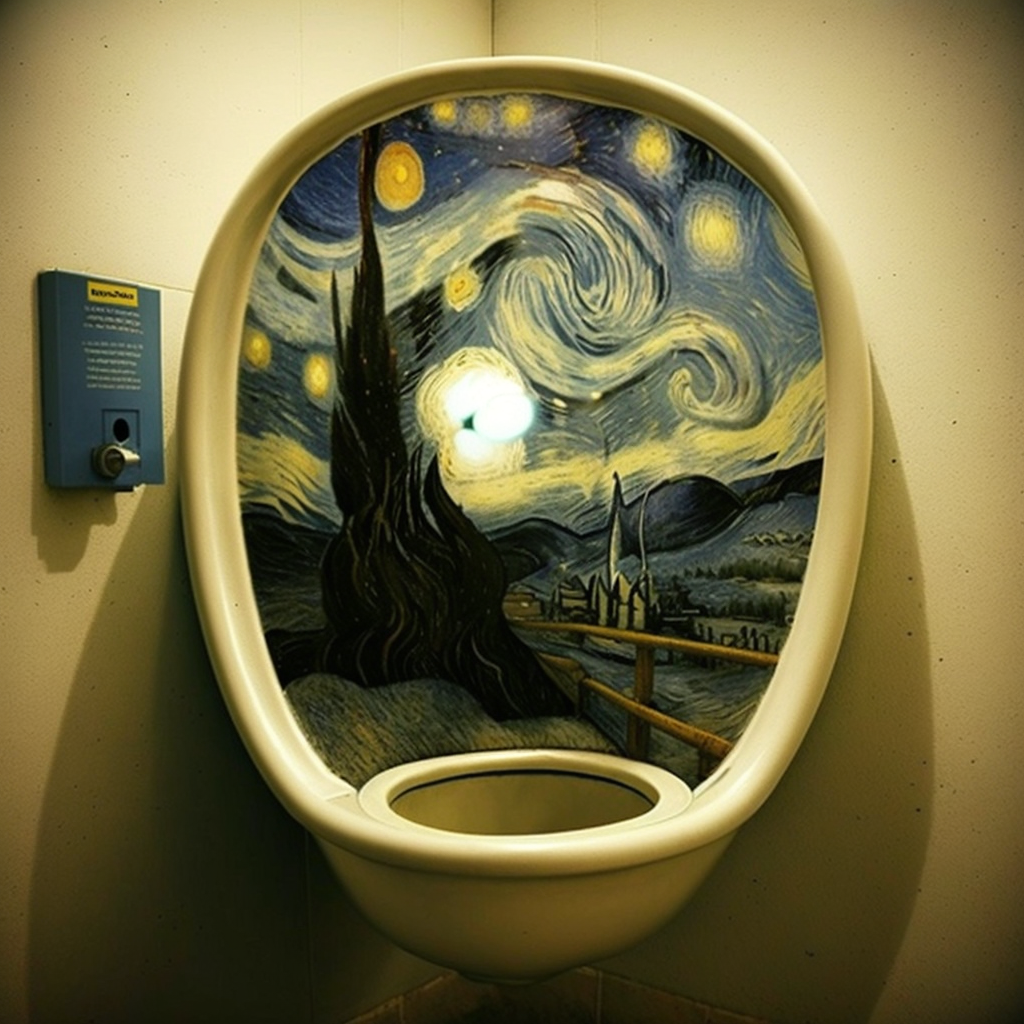
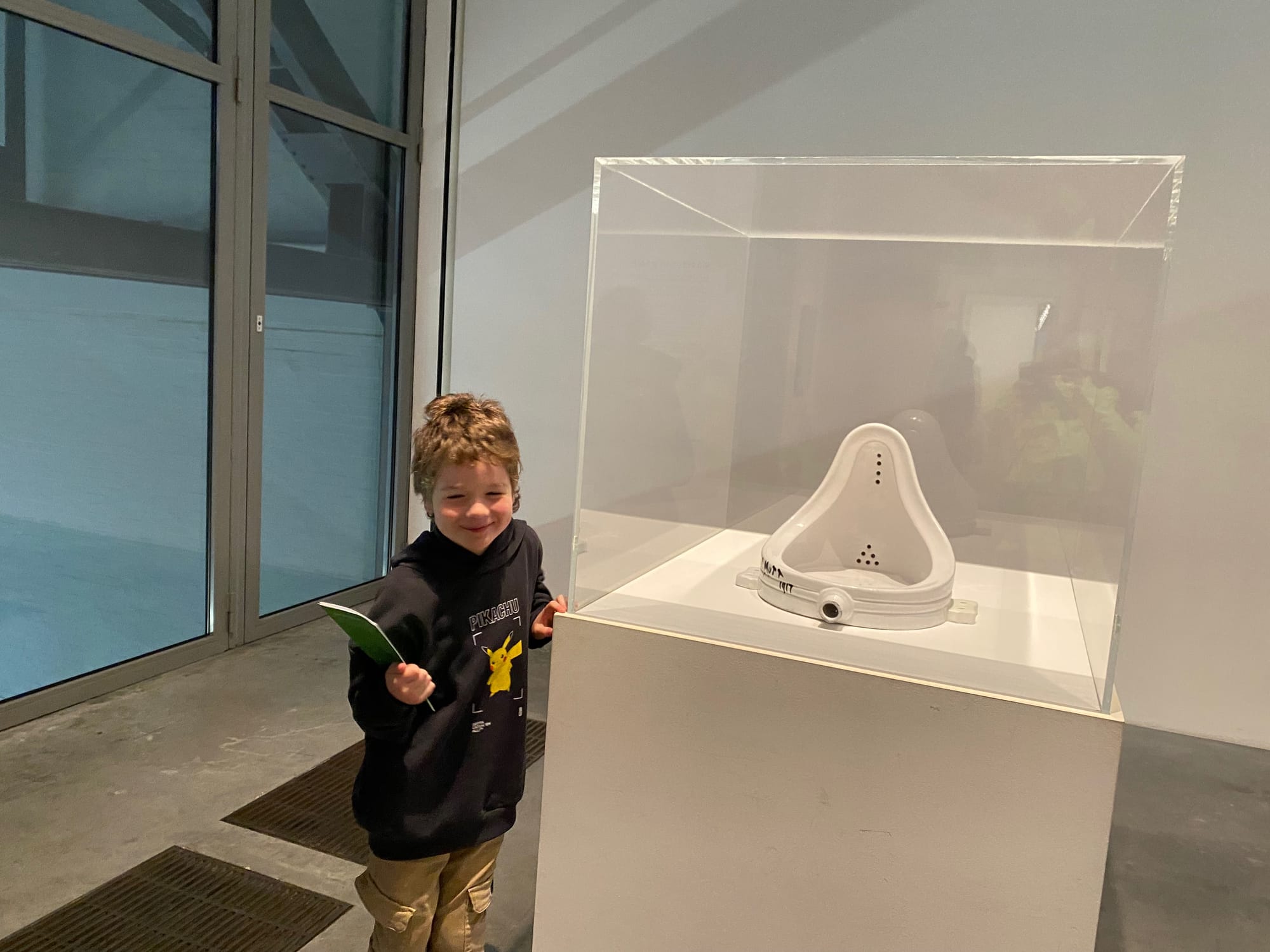
The Key Stage 2 (upper primary) worksheets on Twinkl/Oak National Academy were too simple, raising more questions than they answered. The Key Stage 4 content, meanwhile, was far too 'grown-up' for Bigger Boy who still likes cartoons and giant bubbles, and only has a longish concentration span by the standards of primary-age kids.
Moreover, there is no necessary relationship between being 'studious' (in the schoolwork sense) and being academically gifted. Bigger Boy had grown to hate school-esque worksheets, especially anything to do with handwriting, and refused to engage - this is apparently pretty common in kids who enter home education after a bad experience in school.
Or maybe any experience in school... see below.
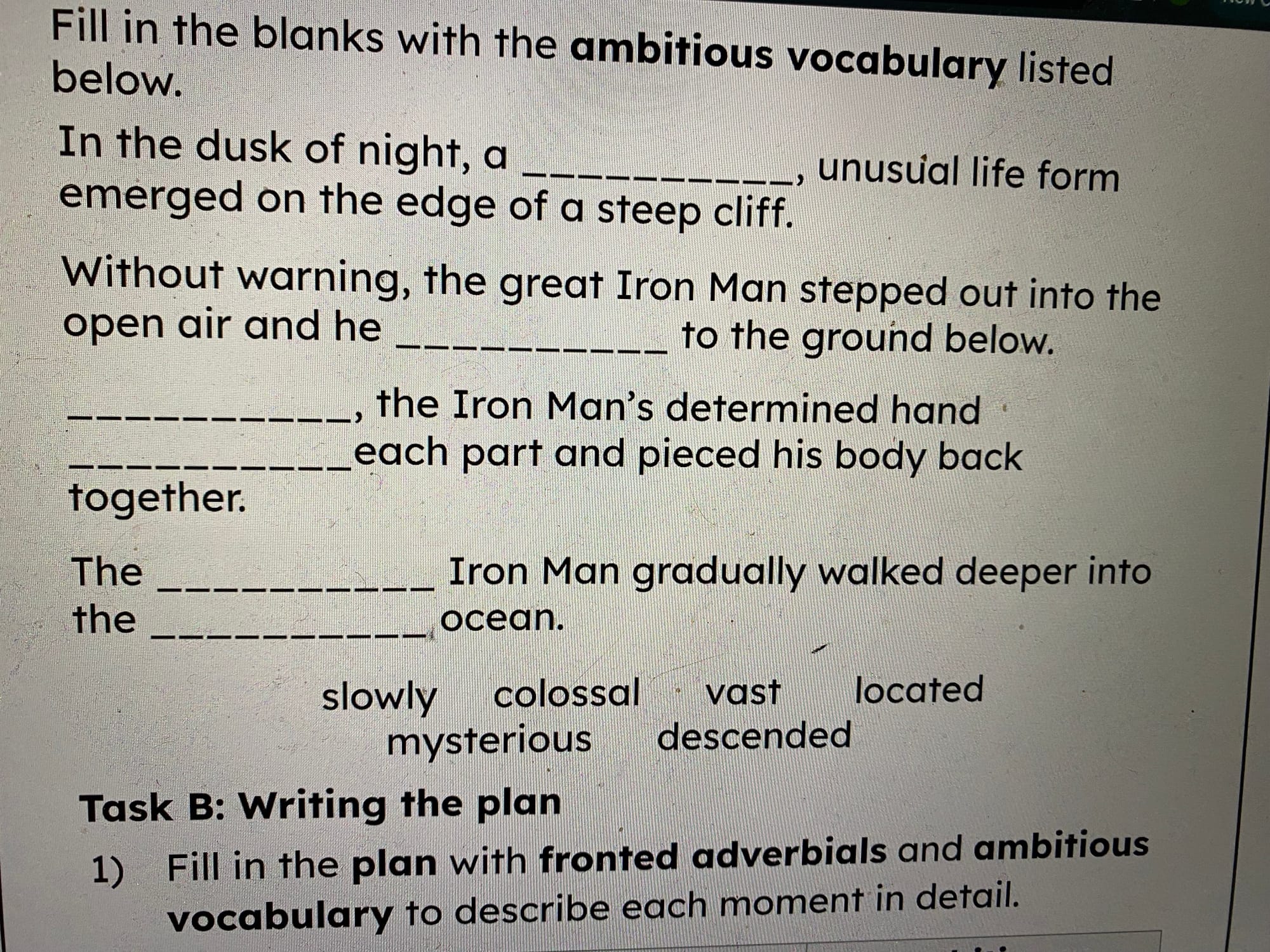
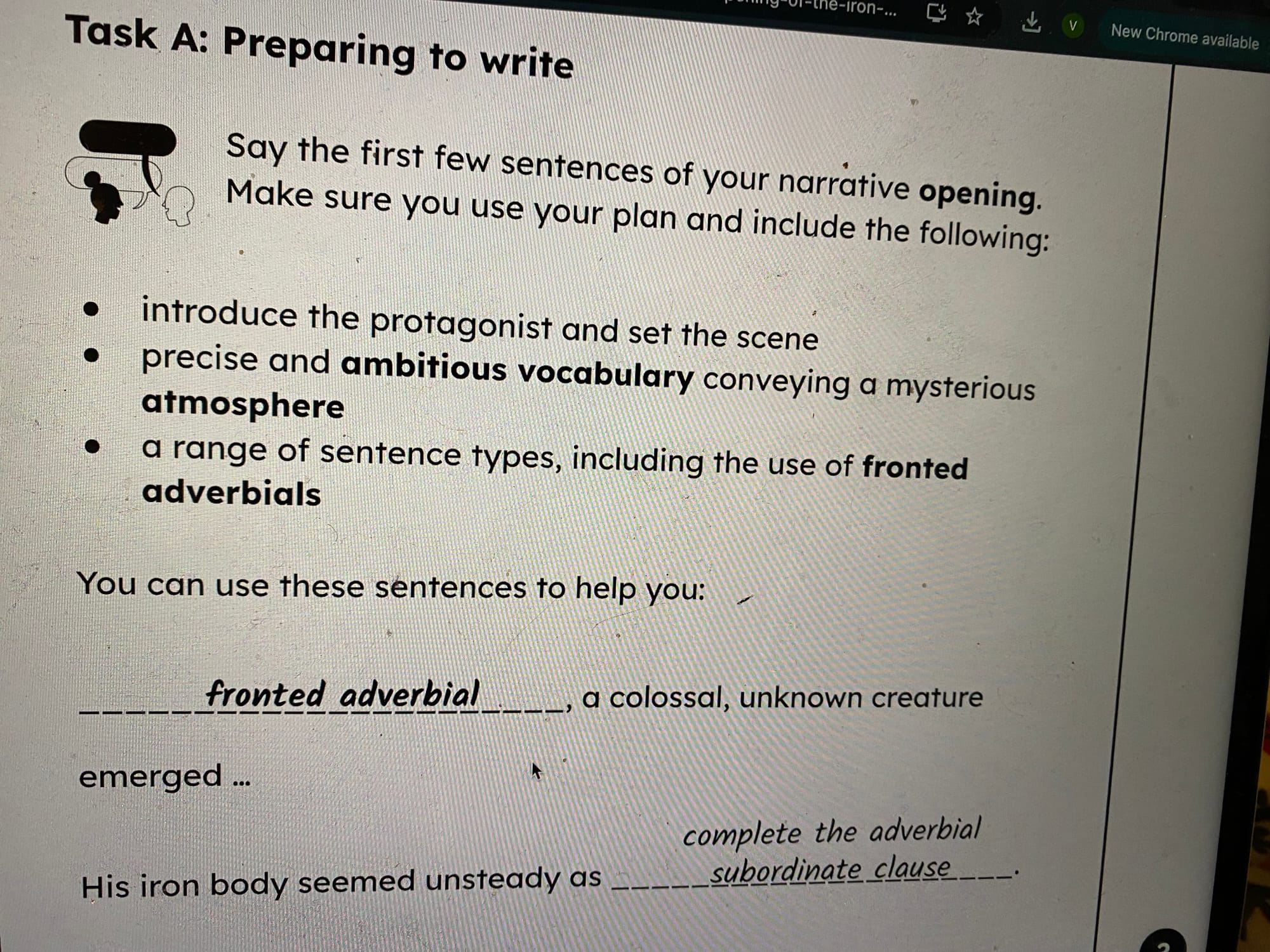
Carcinising into 'Sigma School'
England's home educators are (currently) loosely 'overseen' by local government , whose job it is to ensure all children are receiving an education. Although it varies county to county, the average practice is for local government to write to a parent every year.
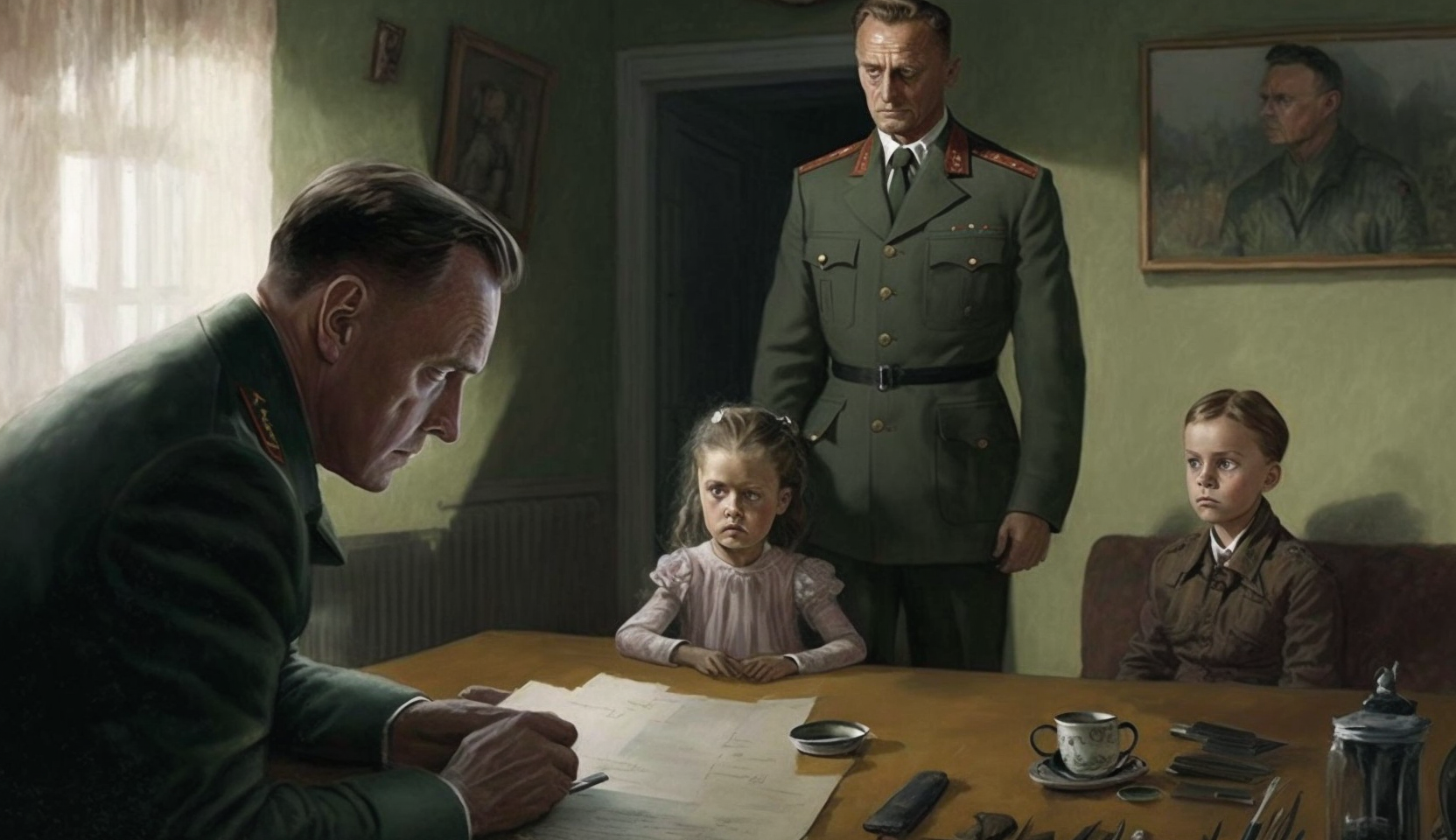
Officials typically want specific information about a child's progress in literacy and numeracy (which is wider than maths and english) and, thus, I was really worried about ensuring I had these covered. I was already clear that, although Bigger Boy could be at high school grade level in some subjects, he is probably too young - aged eight - to take exams, given his anxiety and sensory issues, and I need to somehow build his understanding until he is ready.
This documentary is a bit of an object lesson in 'why you shouldn't super-accelerate smart kids'. This young chap, if you watch closely, simply isn't emotionally ready for a college course, especially not as the 'second shift' after an average school day.
My solution was to find apps that could automatically assess Bigger Boy's actual grade level in maths and english. Then, I paid (yes, you can now be shocked) him to do enrichment exercises at that level. I had realised, a while back, that he was motivated by playing games, so I also picked software that worked as much like a game as possible.
We started off with Doodle Maths, moved to Numerise (which he found a bit too repetitive and grind-y), and then returned to Beast Academy - which is pretty-much the US maths curriculum for gifted junior school kids. At the same time, he's learning touch-typing in Typesy and has just started on IXL for English, where he's currently testing somewhere between 9th and 11th grade. As I've always regretted never properly learning a second language, I tested out a bunch of gamified language apps (e.g. LingoDeer, Babbel) and eventually settled on Duolingo, where he studies French (his choice of language) and chess.
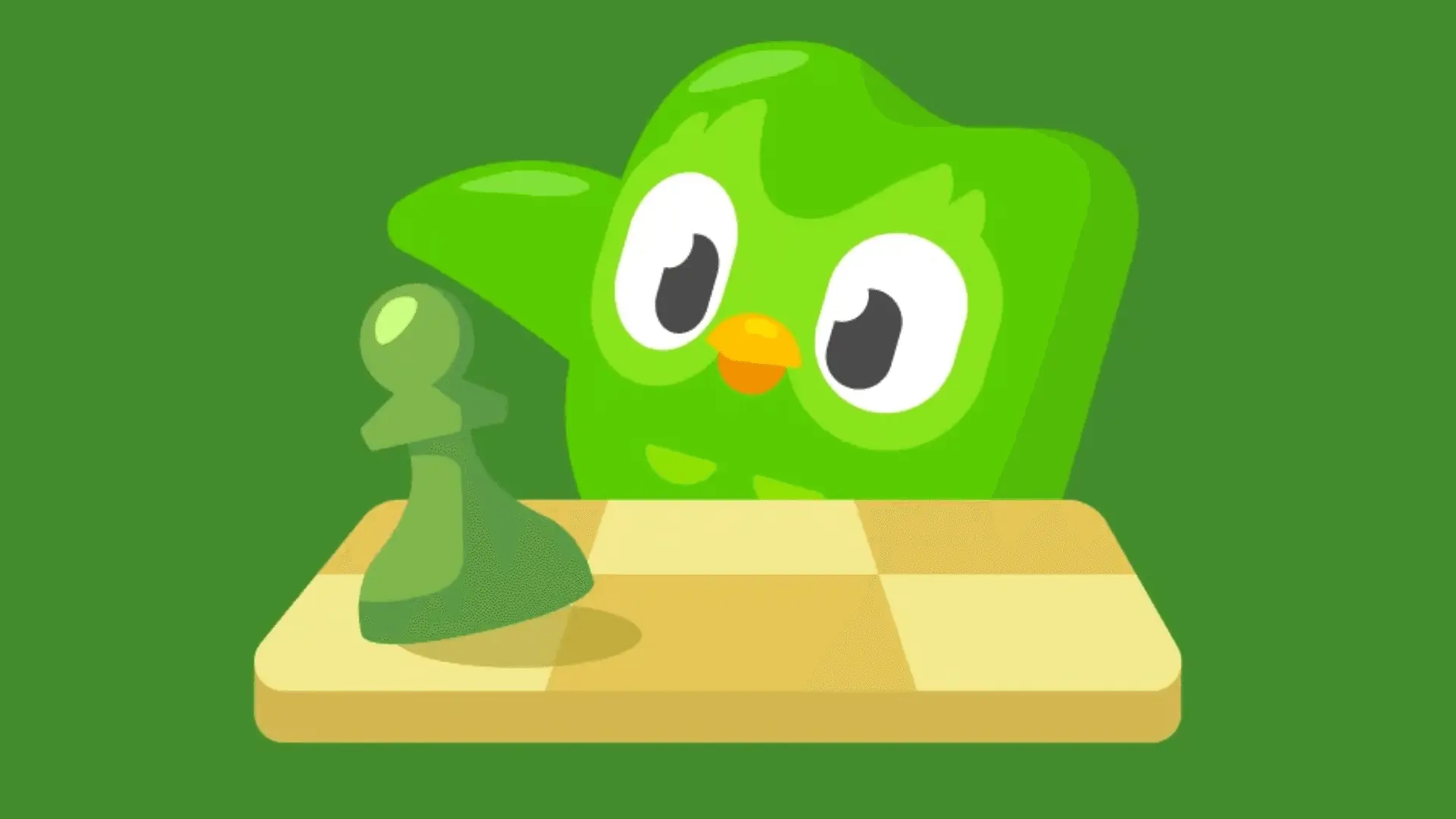
The beauty of many of these apps is they personalise to his level, rather than being an age-standardised curriculum, and they use analytics to recommend new questions for him to answer and to help me understand where he excels (and is struggling). With Beast Academy, for example, as he normally gets 3* (100%) on the standard exercises, it offers him 'Enrichment', 'Challenge' and 'Trophy' puzzles, which are super hard. Many of the apps are also designed to work in short bursts (as little as ten minutes per day) and have gamified elements, such as earning 'pets' in Typesy or the looming pressure to keep up your Duolingo 'streak'.
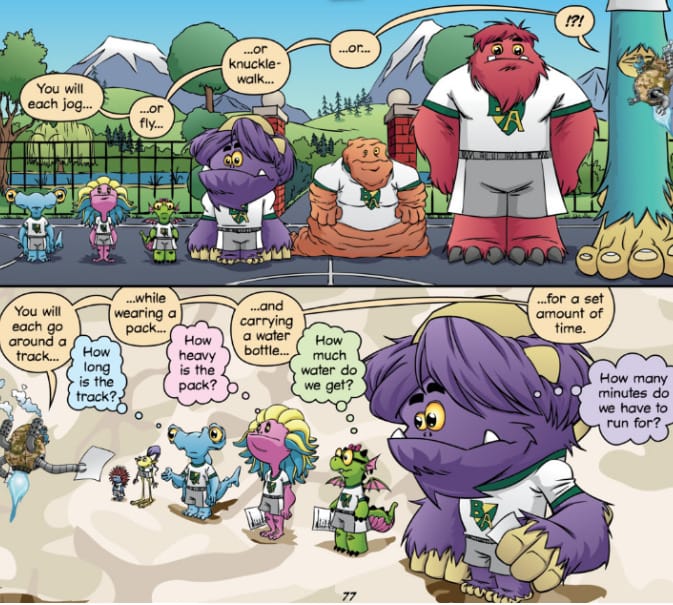
This bundle of short online activities, each with a financial payment, became known in our house as 'dailies' (because you do them everyday). 'Dailies' are a bit like schoolwork and, thus, work you get paid for - similar to how an adult gets paid for doing a job that isn't their choice. After finishing 'dailies', you can then do something 'more fun' (or less like sit-down schoolwork, anyhow), such as going to the park or continuing a Minecraft project.
Alpha School has a similar system, except pupils call their dailies 'minimums' and get paid in a school currency called Alpha Bucks, rather than in cold hard pounds sterling. But the thing they tend to 'ace' upon, in their videos, is not the use of apps, but the extra time opened up by using computer analytics to offer adjustable difficulty and real-time assessment for the core curriculum (there is no generative AI in my educational program or, from what I gather, Alpha School's).
As most unschoolers will tell you, 'learning' happens everywhere and anywhere. Alpha School, being based in Austin Texas, use their afternoons to run 'life skills' workshops, on soft skills such as teamwork, public speaking and resilience. Students might be solving a Rubik's Cube, running half a mile, or just doing athletics with a team of well-educated 'guides' (I personally use the term 'facilitator').
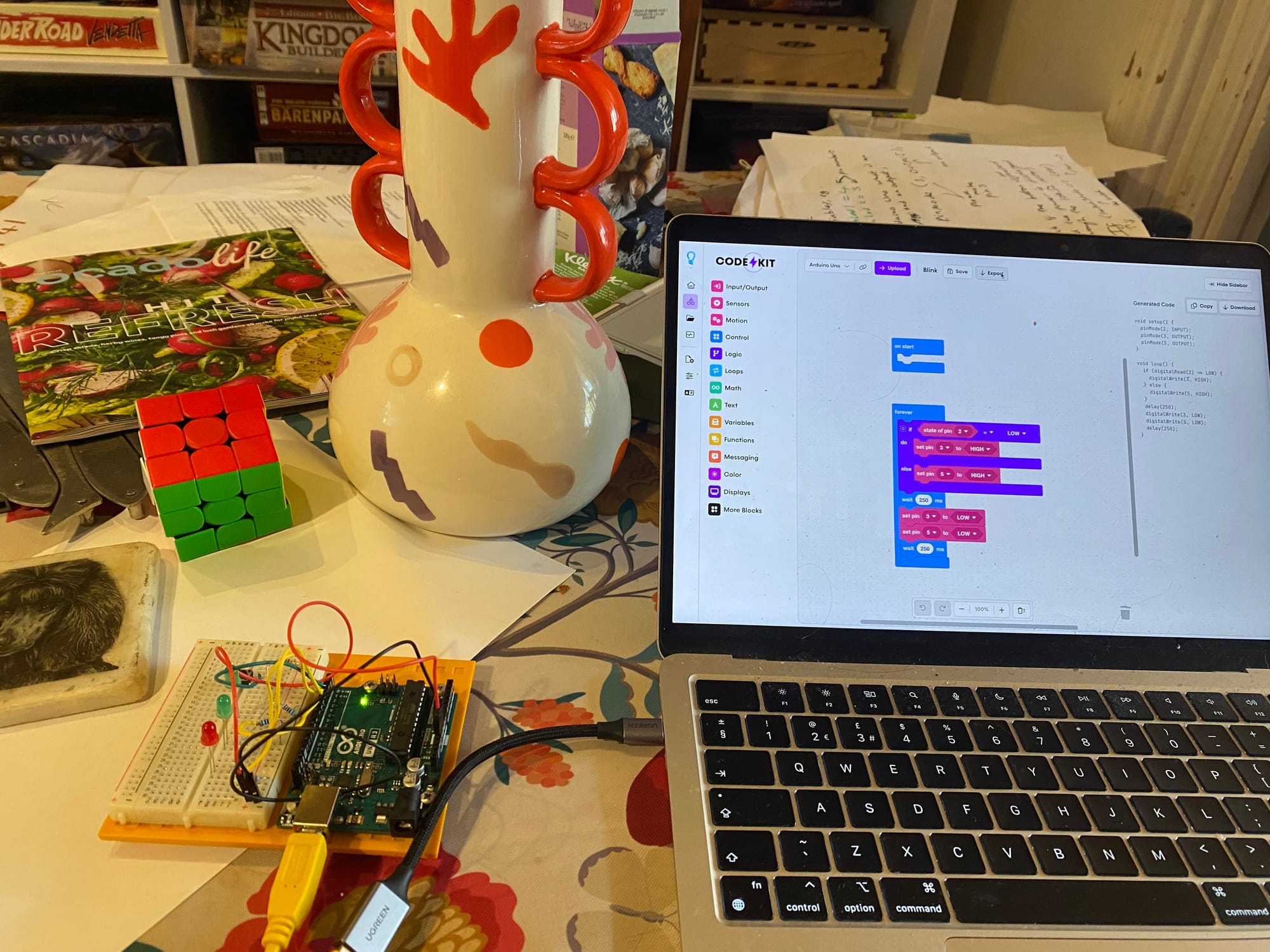
As I'm based in inner London, a global city is our classroom. Bigger Boy and I spend our 'non-dailies' time collaboratively solving engineering problems in Minecraft. We code robots in mBlock and wire up Arduino breadboards. We've been on educational trips to the Houses of Parliament, the Churchill War Rooms and even Rome by plane. He goes out once a week to play cops and robbers at a wilderness club with a bunch of other 2e/DME kiddos (yep, folks, the UK's school system is so 'world-class' in failing to educate anyone remotely outside the average that all the autistic kids who can pass GCSE maths, aged 11, are running about in a wet wood). This is personal preference due to his sensory issues - most home edders do much more socialising than he does.
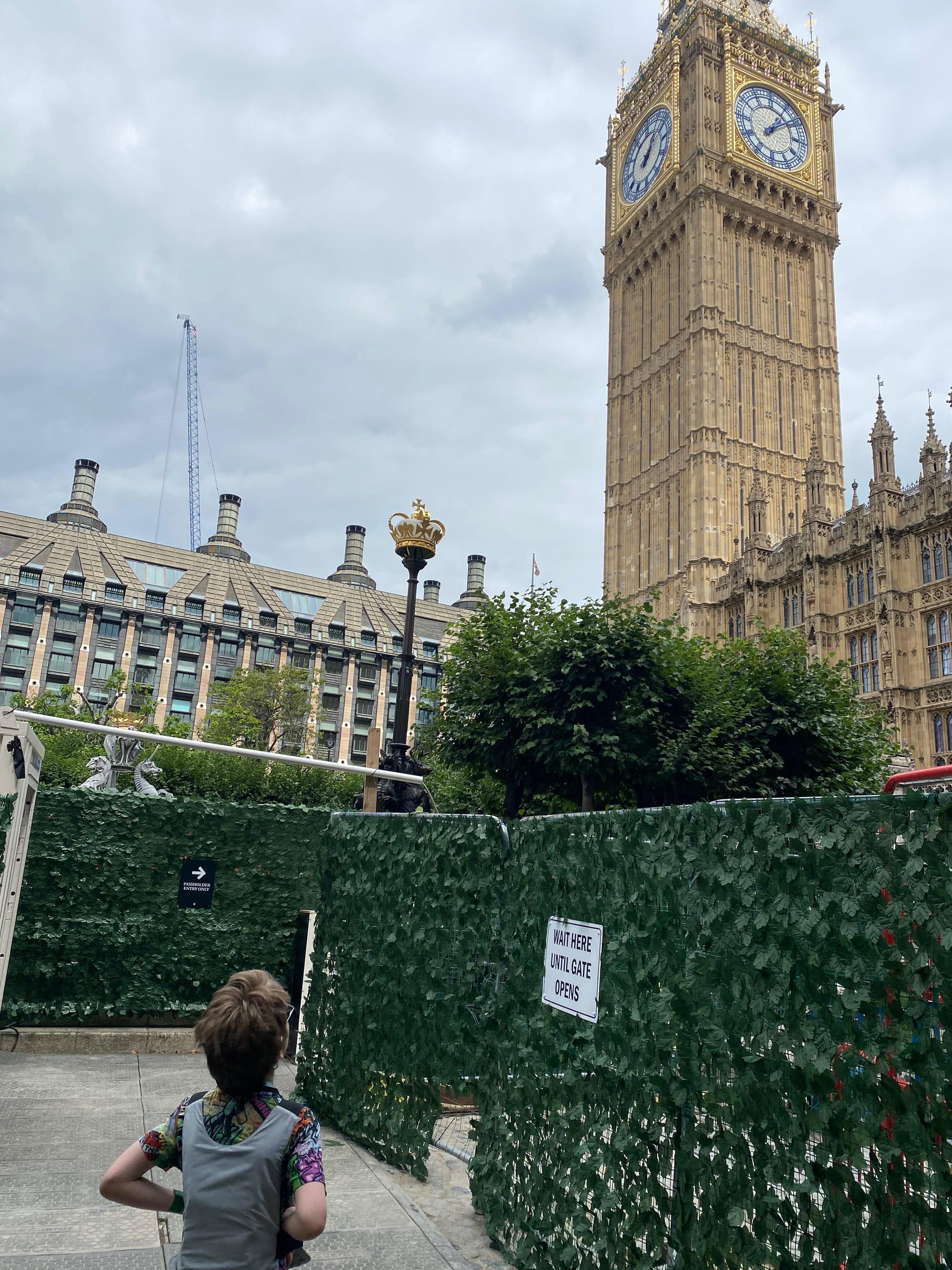
Even popping out to collect Smaller Boy from a holiday club recently became an romp through the history of London borough boundaries. But, of course, an eight year old doesn't always understand that choosing to watch a video on the history of London boroughs and then exploring it, for himself, during a bike ride, counts as child-led 'learning'.
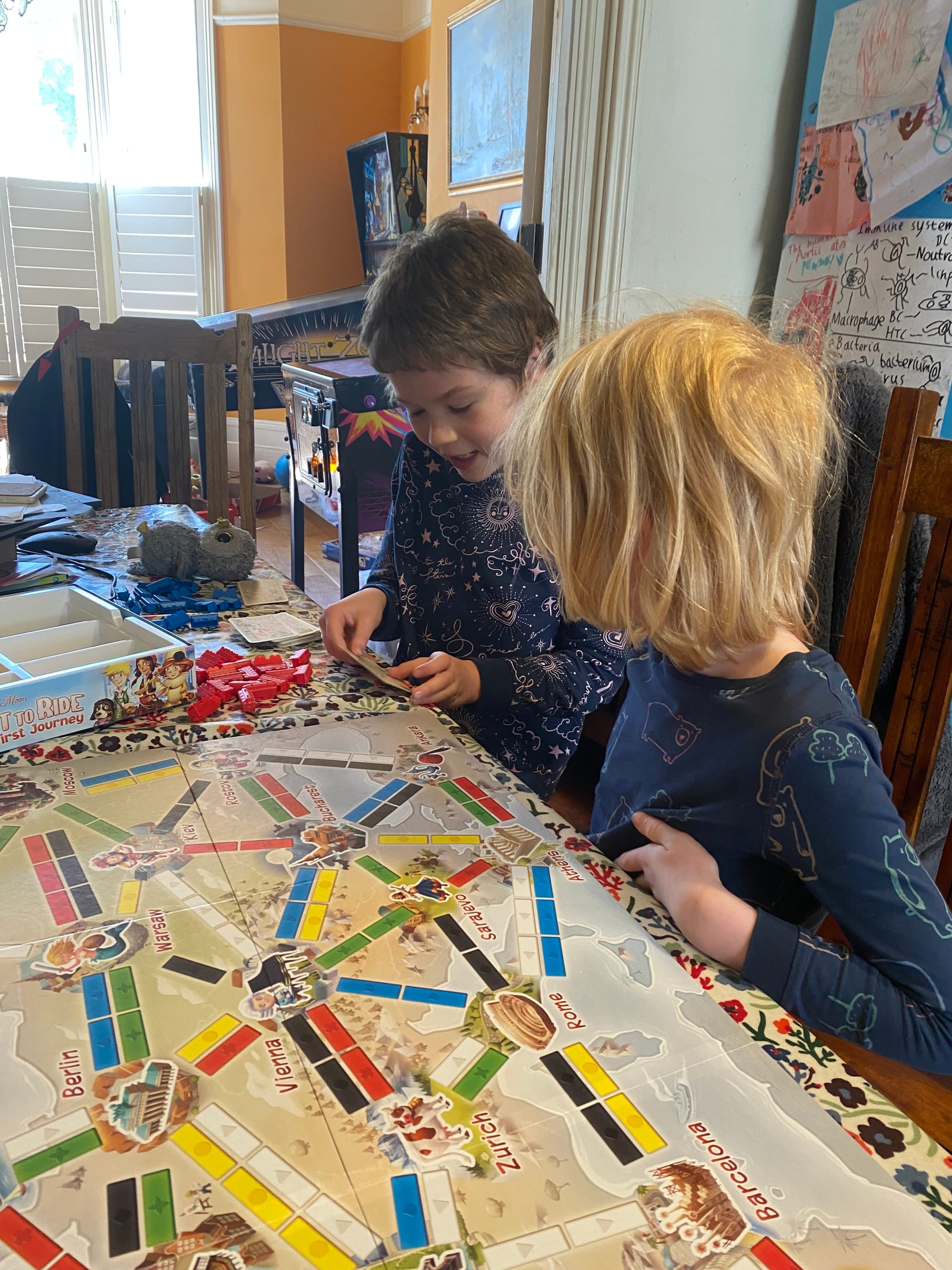
Using personalised learning to streamline 'standardised' curriculum elements that don't require human relationships (e.g. integer approximation through rounding) leaves more time for lived experiences, developing soft skills and learning through play. It seems to work well (for Bigger Boy, at least) and, as such, I'm now adding Smaller Boy to the program - with some adjustments, of course.
Smaller Boy is Level Two gifted, and enjoys playing Reading Eggs to earn money to buy Lego. As he has fine motor delays and benefits from manipulating small objects, the combination of reading and Lego is a clear win-win. I began Reading Eggs with him earlier this year, after he started refusing to read his school phonics book more than once, and I've now extended it to become part of his 'dailies'.
It turns out that he will gleefully play reading games, watch animations and listen to songs, but - surprise surprise - won't read the exact same book three times in a row, even if I pay him (perish the thought!)
As Smaller Boy doesn't have the motor skills yet for (good) handwriting, but is too little for Typesy, I'm also using Nessy Fingers for touch typing and he writes on a reMarkable to protect his fingers from pain.
We're currently two weeks into a school holiday and it seems to be working out... so far.
Finding The Crab Attractor

As I wrote at the beginning of this almost-Astral-Codex-Ten-length essay, I never intended to create Alpha-School-at-home. I was simply trying to educate Bigger Boy. Alpha School, meanwhile, didn't set out to create a gifted & talented kids' program (although they do have a GT school). Instead, their aim was to use AI to create a new model for learning.
Interview with the co-founder of Alpha School about their 'two-hour learning' model
Yet, despite us being different 'species' of educator, we seem to have converged upon a similar model. Replacing 'teachers' with guides/facilitators, who act as bright and sparky mentors, rather than subject experts (I also hire an undergraduate 'assistant' to work with the boys). Using gamified apps with incentives for the tedious stuff, to get through it much faster, while spending the extra time on activities requiring dedicated human contact. And, finally, running Duolingo/IXL in the morning and 'fun' school in the afternoon.
It's all as much a 'crab of education' as the low, round, scuttly beastie who may, or may not, be a real 'true' crab.

Now, you might be asking the question: Why do we have this crab of education?
Why did two completely different people, not even sharing a continent, independently develop almost the exact same approach?
Well, we have a theory...
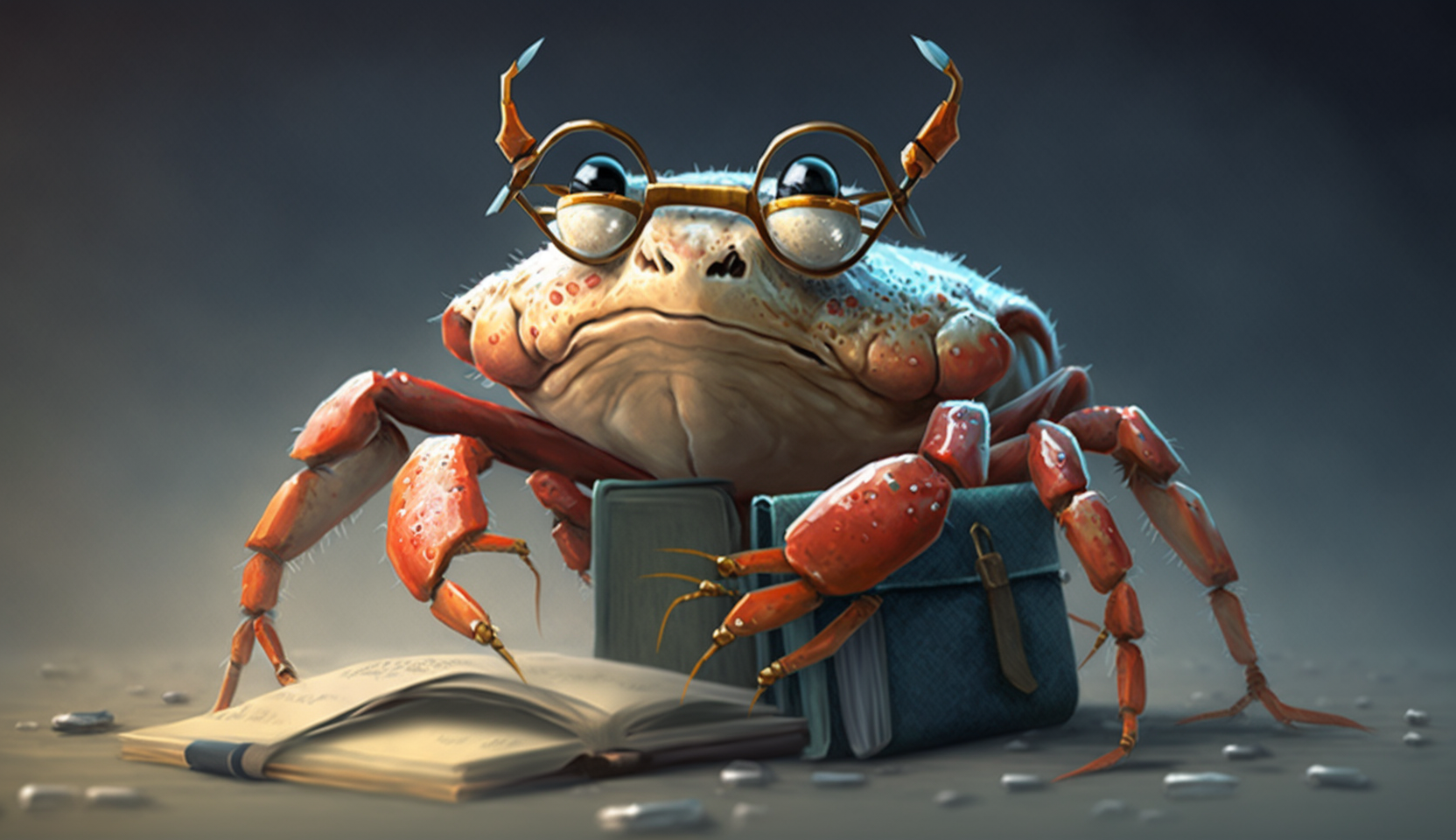
This 'crab of education' exists because, although multiple subjects are bundled into a school curriculum, they're all not created equal. Some are best learned experientially, others by sitting at a desk (or standing) (or even kneeling or chewing while bouncing on a yoga ball... we're very neuro-affirming around here!). Some minority of skills, including handwriting, touch typing and playing piano, unfortunately have to be drilled.
Traditional schools have sensory rooms where kids go for a short break each day to use the yoga balls. Here at 'Sigma School', our (two) students bounce on yoga balls and chew on sensory necklaces WHILE they work.
'Skill-based' subjects, such as maths, reading and foreign languages, which require sequential teaching and form the backbone for other learning, tend to lead to most time wasted - with the highest risk of students becoming bored. Students have to wait around for the rest of the class to catch up, or for a teacher to support them.
Using apps and cash incentives to provide personalised learning removes the time wastage (and boredom) of making 24 kids do the exact same un-fun thing at the exact same time.
Content-based subjects, such as history or art, meanwhile, are far harder to deliver via app. I designed Bigger Boy an entire bespoke Ancient Rome curriculum earlier this year, including drawing a 17-page comic book about Roman governance and locating several YouTube documentaries. The first iteration of Alpha School was apparently "weak on things like history and geography", as they didn't fit easily into the two-hour tech platform.
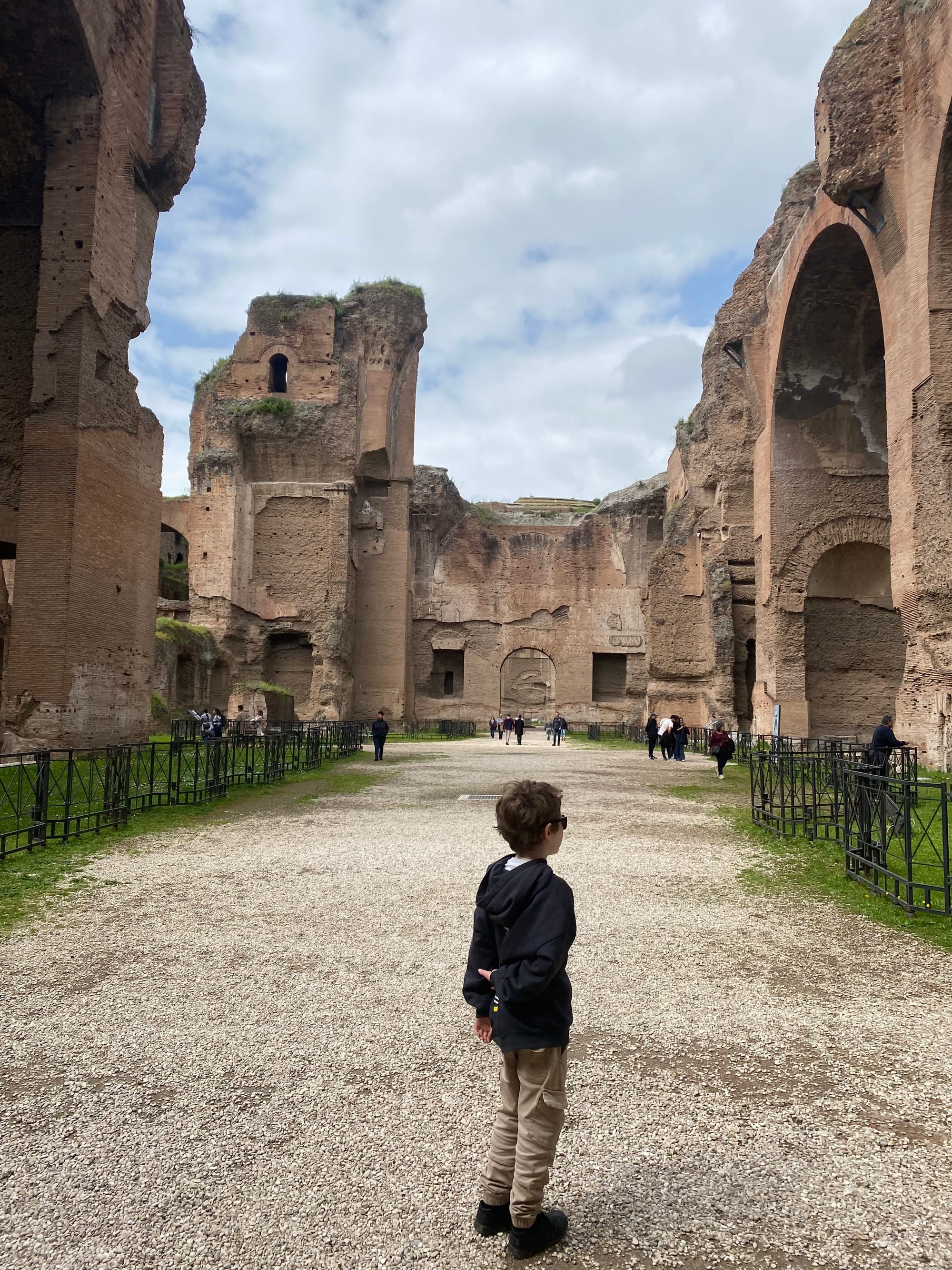
And now a few caveats...
Both my kids are academically gifted (and diagnosed autistic), with parents in professional technical occupations. Exactly the same cohort who'd be attracted to an expensive private school in Silicon Hills that advertises itself as "AI-powered" in my Google Search results.
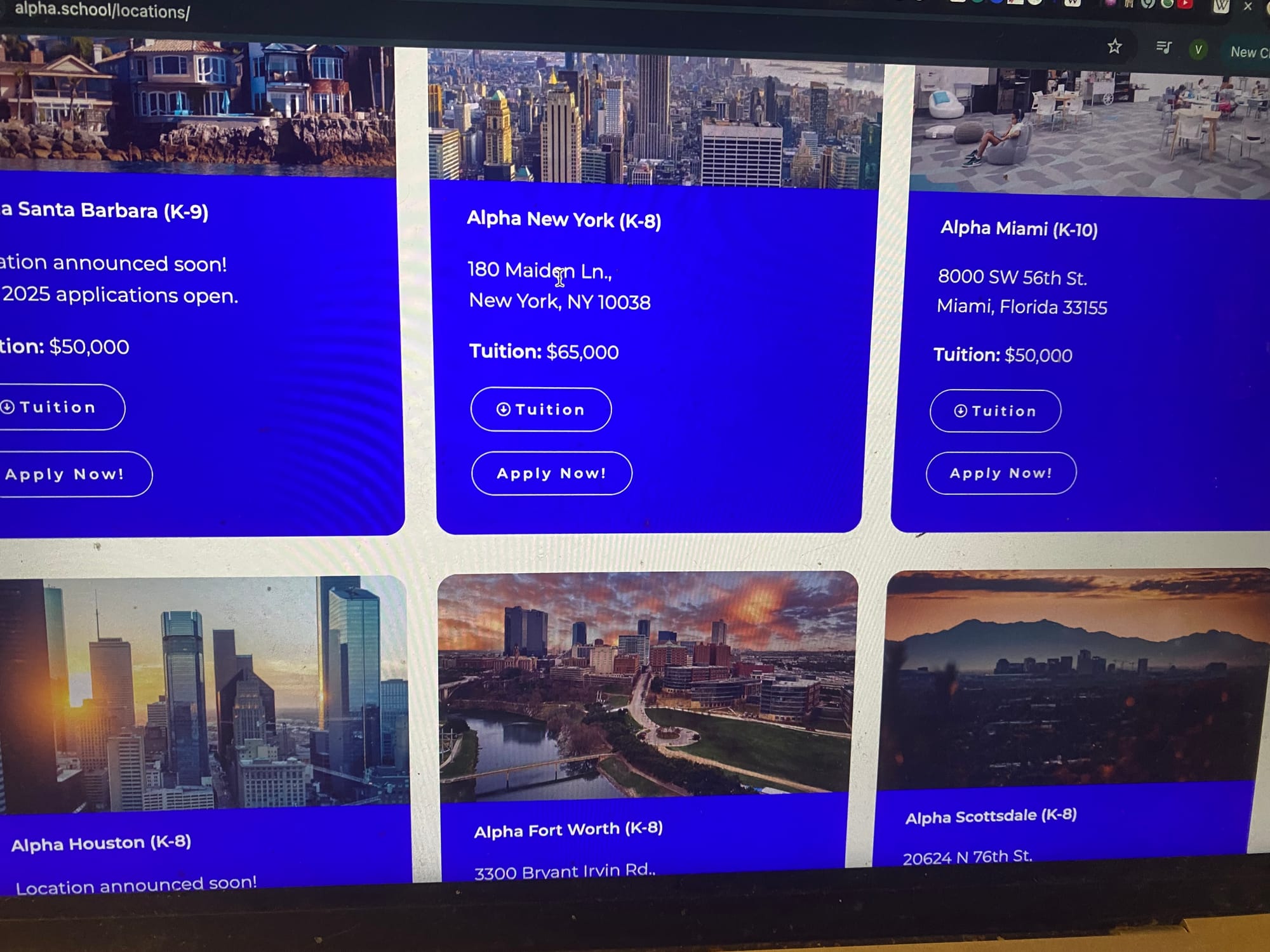
As such, I've no idea how well this model scales to a class of thirty kids from more varied backgrounds. But, since Alpha School now has branches in fourteen US locations (with two more opening in the fall), I guess we'll find out in the next few years. In particular, the app-driven model only streamlines learning if it reduces the time spent handling differences in student skill. If the class is also disrupted by poor behaviour, there's nothing this model can do to help.
Happily (for them), Alpha School doesn't recruit badly-behaved kids. It's not a problem for home ed either. The only disruption in my 'class' comes from my smaller neurodivergent learner periodically removing his socks and (in both the US and UK sense) 'pants'.
